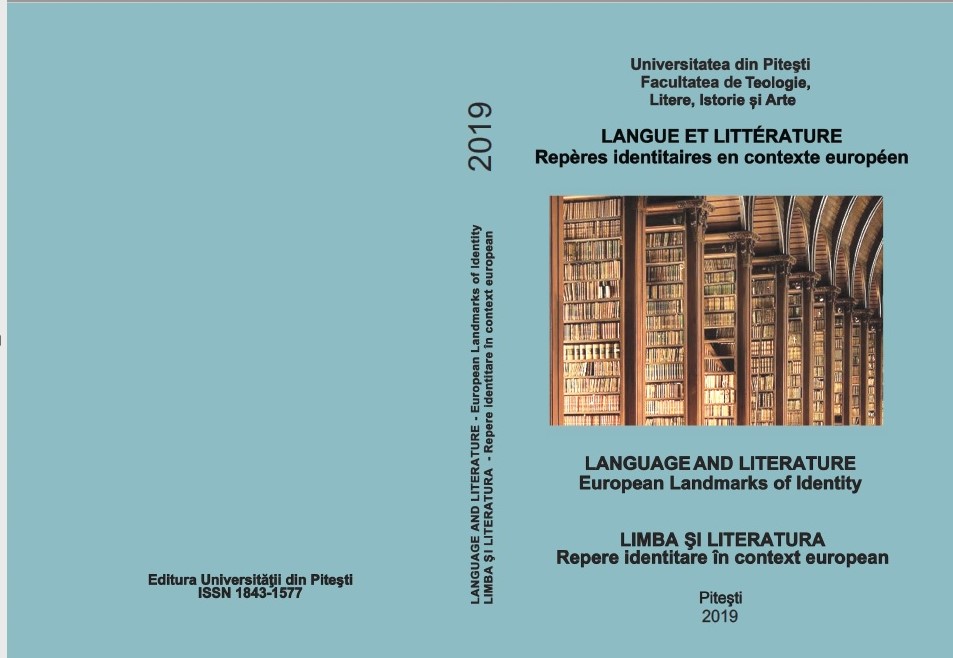THE ABSURD OF MAX BLECHER’S IMAGINARY
THE ABSURD OF MAX BLECHER’S IMAGINARY
Author(s): Alina-Mariana StîngăSubject(s): Language and Literature Studies, Studies of Literature
Published by: Editura Universităţii din Piteşti
Keywords: the absurd; fantastic; non-reality;
Summary/Abstract: Under the slogan of P.B. Shelly, “I pant, I sink, I tremble, I expire”, the debut of the novel “Happenings in the immediate non-reality” has, over time, led to a pluriperspectivist interpretation. The title expresses the substance and the style of the book, in which the hero carries its existence into an “unreal” reality. The fictional narrator lives the experience of self-estrangement materialized into a crisis of identity there being a clear dissociation between the ego of the narrator and the ego of the author. The dissociation of person-character is obvious because the “clear” image of the person is doubled by an “abstract” one of the character that represents the point of departure with a double valence of the Blecherian imaginary. After a moment, reality returns, restratifies, and the room is a closed inner space which reconfigures “fresh”. The reflexive nature of the beginning, in the spirit of Eminescu’s novel Poor Dionis was remarked by Dumitru Micu, focussing the critical discourse on the same crisis of identity, crossed by the narrating ego that “derealizes”, cancelling the boundaries between real and dream. It is a struggle between an “over-ego” and a “concrete ego” which disputes their supremacy over the narrator’s being. Permanent ambiguity reality-dream is maintained by the character - narrator through the novelist’s will for whom the outside world is confused with the inner world and vice versa. The reverse of the immediate reality allows voids to be filled and people float like bubbles of air through water. The unusual universe of the Blecherian fiction allows as harmless facts, gestures that are actually shocking in the material reality: immersion into the mud or into erotic attractions coming from a malicious magnetism. The fantastic realism of Kafka’s prose is found in Blecher’s work through the ability of being able to describe everything that is common lending him “a confusing transparency”. On the other hand, common for Bruno Schulz and Blecher is “the preference for depreciating and common things” as starting points of genesis for “the world of strange and alienation”.
Journal: LIMBA ȘI LITERATURA – REPERE IDENTITARE ÎN CONTEXT EUROPEAN
- Issue Year: 2019
- Issue No: 24
- Page Range: 115-120
- Page Count: 6
- Language: English

